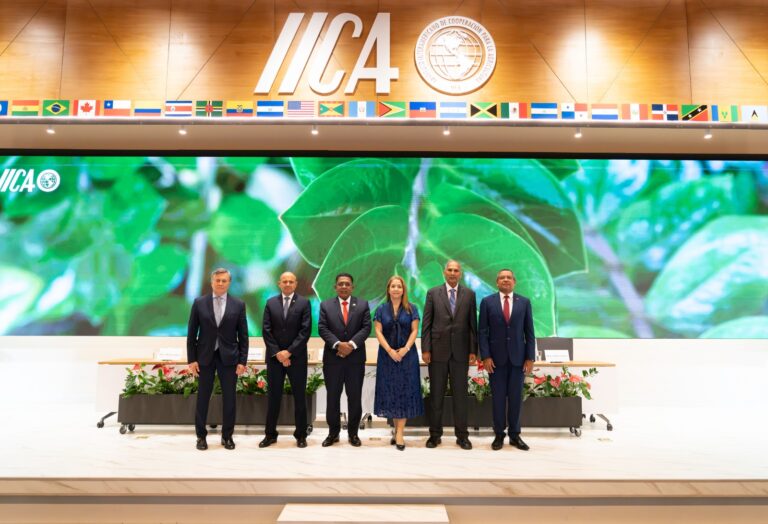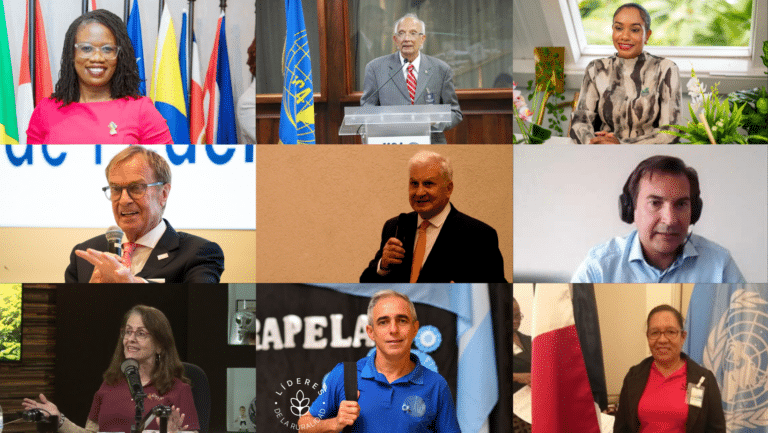During a forum at IICA, experts explained that, thanks to the ‘peace clause,’ countries would not challenge distortions to trade in food until food insecurity problems had been solved.
San Jose, Costa Rica, March 19, 2014, (IICA).Specialists in trade policy agreed that the most recent conference of the World Trade Organization (WTO) endorsed international efforts to achieve food security by granting countries a grace period, to enable them to create public food stockholdings and subsidize the produce they purchase from smallholders.
The main decisions related to the agricultural sector taken at the Ninth Ministerial Conference of the WTO, held at the end of 2013, in Bali, Indonesia, were presented at a technical forum organized by the Inter-American Institute for Cooperation on Agriculture (IICA) recently.
Those decisions include the ‘peace clause,’ under which the organization’s member countries agreed not to challenge other nations even if they distort trade by building up reserves and subsidizing certain production.

Speaking from Geneva, Switzerland, Ulla Kask, a Counsellor with the Agriculture Division of the WTO Secretariat, explained that the mechanism was temporary. “Following the decision, the countries will now work to find a permanent solution to the problem. It must be ready by the Eleventh Ministerial Conference at the latest,” she pointed out.
Since the conferences take place every two years, the eleventh meeting is scheduled to be held in 2018.
“The creation of reserves or stockholdings for food security purposes had been abandoned but several countries resorted to the practice in the wake of the crisis in food prices, which spiked and were very volatile in 2007 and 2008,” observed Rafael Trejos, Manager of IICA’s Center for Strategic Analysis for Agriculture (CAESPA).
In February 2014, IICA Director General, Víctor M. Villalobos, informed the ministers of agriculture of the Americas how the temporary scheme approved by the WTO would work.
In a technical note, Villalobos explained that “Until a permanent solution to the problem of food insecurity is found, developing countries that have notified the organization that they have exceeded, or run the risk of exceeding, their monetary limits of distorting aid as a consequence of the application of programs designed to contribute to the achievement of food security, and that have ensured that their programs do not negatively affect the food security of another member, may take advantage of the peace clause established in the decision.”
The document also underscores the importance of the WTO. After a long period of stagnation in the multilateral negotiations, at the Bali meeting, the organization demonstrated its relevance as a forum, with the countries reaching agreements that offer significant and equitable benefits with respect to international trade and development.
In the technical forum, the agricultural negotiator of Costa Rica’s Ministry of Foreign Trade, Henry Benavides, endorsed that position. “National trade policy decisions should always be consistent with the agreements reached at the WTO,” he observed.
Mónica Segnini, President of Costa Rica’s Chamber of Exporters, felt that countries could support the efforts of small producers to become more competitive within the framework of the WTO.
“Trade opening processes have forced us to be more productive, for which we need better public policies, more technical support and new technologies. We’re not talking about protection but the need to remove obstacles, correct weaknesses and increase financial options,” Segnini remarked.
During the technical forum, WTO representative Ulla Kask also explained the scope of other decisions on agriculture taken at the Ministerial Conference in Bali, related to the administration of tariff quotas, general services and other issues. Her presentation can be downloaded here.
For further information:
adriana.campos@iica.int
Technical note: Advances in the multilateral negotiations: main results of the Ninth Session of the WTO Ministerial Conference










